Flight Buzz
Tshwane’s Bold Plan To Reignite Pretoria Cape Town Flights For Growth
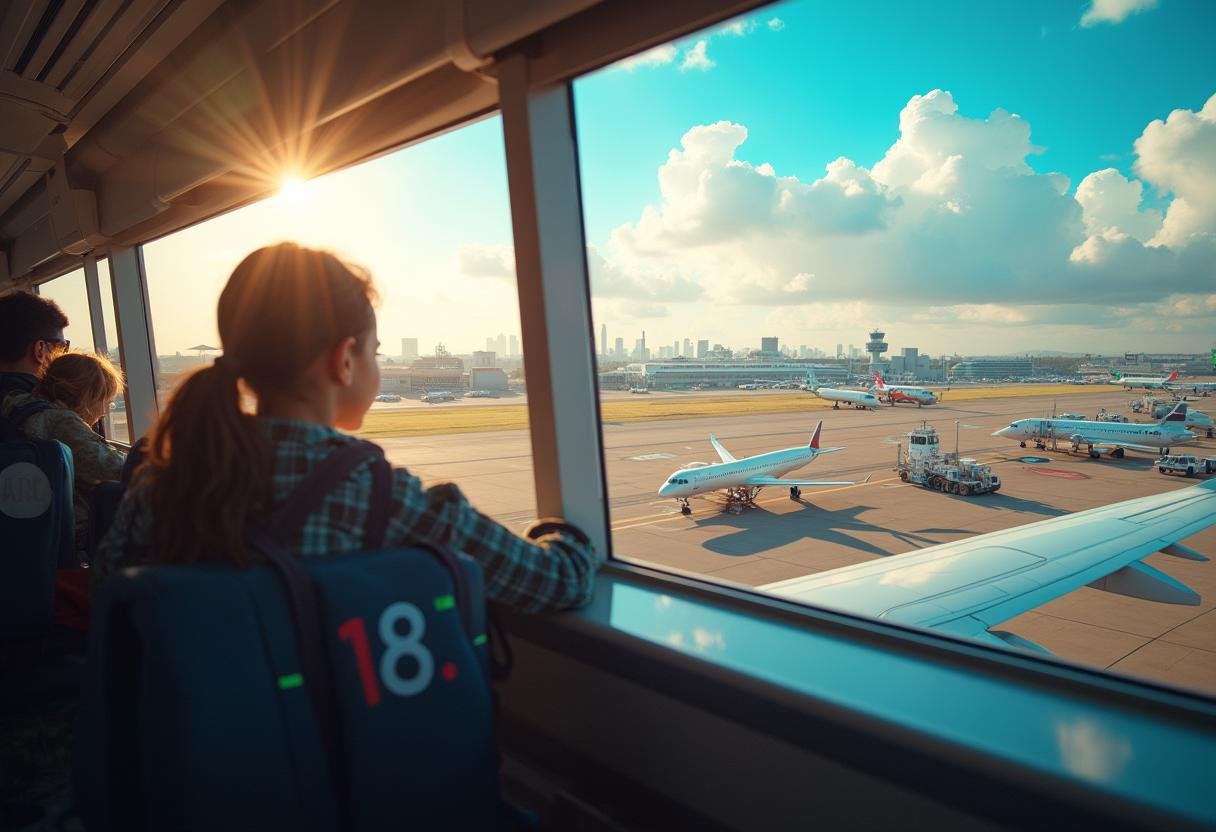
Sunday, July 27, 2025
Innovatively, in a bid to reignite the air travel and economic recovery, the city of Tshwane has announced that flights between Pretoria’s Wonderboom National Airport and Cape Town will be reinstated. The decision follows a suspension of these flights in 2018, when concerns about profitability clipped the route. This is according to Deputy Mayor Eugene Modise, who made the announcement at the Wonderboom National Airport on Friday, where the Children’s Flight 2025 programme took place, which saw more than 1,000 disadvantaged kids being introduced to the world of aviation.
Modise said that Wonderboom National Airport is strategically important to Tswana in terms of the local economy and that the airport is a kind of anchor for redevelopment. The aim is to have the airport operational and a hub for tourism, trade, and investment. It bodes well to pull Tshwane up into a regional and international connectivity player.
Reviving Pretoria-Cape Town Flights
Flights between Pretoria and Cape Town were suspended in 2018 pending a viability study. Tshwane, in a new administration, is committed to reintroducing the route. The city is engaging the South African Civil Aviation Authority (SACAA) to reactivate and renew the relevant licenses for Pretoria-Cape Town flights. We hope this will be done in the next few months, and we will have a direct air link between the two cities.”
Modise also indicated that, in addition to the return of the Pretoria to Cape Town route, the introduction of a new flight linking Pretoria to Durban might also be under consideration. It’s giving an extra push to wider city plans to better link up with regional and international markets, thus opening the door to even more business-related and holiday-minded air flow. The upgrading of the airport will also contribute to local economic development – and offer a boost to tourism in the Tshwane area.
Wonderboom National Airport, the heart of economic growth
Modise emphasized to the House that the Wonderboom National Airport is an economic pillar for Tshwane, not just an air transport gateway. He pointed out that the airport could grow tourism, trade, and jobs, and might develop, to the city’s advantage, into an important economic powerhouse. The city is preparing to take the airport to market and seek investors who can develop it more effectively.
The airport’s local economic significance to the Tshwane region was highlighted by last month’s announcement that AERO South Africa, an aviation show previously held at Wonderboom National Airport, would move to the new airport. AERO South Africa organizer, Messe Frankfurt South Africa, opted not to renew its agreement with Tshwane following the event in 2024, moving instead the three-day event to Lanseria International Airport. It has, however, secured additional accords to use Wonderboom National Airport for some other projects and business ventures.
Children’s Flight 2025 Programme: Educating the Leaders of Tomorrow
The news of Tshwane air travel recovery follows hard on the heels of the successful 10th edition of the Children’s Flight 2025, an event that took over 1,000 underprivileged children into the sky. They are supported by more than 150 pilots and more than 100 nationwide sponsors of the program in an effort to bring children into the world of aviation and possibly lead them to careers as pilots, engineers, technicians, and air controllers.
For many of the children, this was the first time they had been in a helicopter, proving to them that the sky is not the limit. Modise stressed the importance of influencing young minds in order to inspire the innovators, change-makers, and leaders of tomorrow. The kids who attended this event will be more capable of dreaming bigger and aiming higher in their futures.
It is also a testament to the ability of aviation to open doors for young people from all walks of life. By introducing them to the field of aviation, the program offers a first look at career paths they may have never considered.
A Positive Community Impact
The Kids Flight 2025 project was pretty influential in the community. It was aimed at children from registered care homes/counties, etc, who may not have had the chance to experience flying. “To be able to give these types of experiences, life-changing, formative, to underprivileged kids who sometimes don’t know anything other than their everyday living situation, I think it’s a big deal,” said event organizer Felix Gosher.
Tshwane’s MMC for Roads and Transport, Tlangi Mogale, mentioned the happiness this event has managed to bring the children and the larger community. “This drive not only gives kids the chance to feel what it is like to fly but also allows local businesses to get involved, and that promotes unity and community spirit,” Mogale said.
Tshwane’s Commitment to Local Growth
The city’s focus on revitalising air travel and boosting Wonderboom National Airport is just one part of its broader strategy to boost local growth and increase Tshwane’s place in the regional economy. Modise stressed that managing to restore the flights and increase the operations of the airport would have huge economic spin-offs for Tshwane residents, as it would help create jobs and enhance economic participation.
While talks are ongoing with the South African Civil Aviation Authority (SACAA), among others, Tshwane can expect a massive shake-up that will redefine the city’s economic profile. The reintroduced Pretoria-Cape Town flights are not only an increased convenience for South Africans, but also expected to have a spin-off effect on tourism and the business environment.
Looking Forward: A New Era for Tshwane
“It is precisely this vision for the rebirth of flights between Pretoria and Cape Town and attempts to make [Wonderboom National Airport] an instrument in regional connectivity that illustrates that the City of Tshwane is committed to economic growth. Projects, such as the revitalization of the airport, together with projects such as the Children’s Flight programme, illustrate Tshwane’s commitment to the future of its citizens and their children.
Revival in Tshwane is planned around the aviation industry which is a very exciting new era for the city. With flights set to once again take off (and the possibility of new routes), Tshwane is becoming something of an essential transport node and a key player in economic success in South Africa.
(Source: City of Tshwane, South African Civil Aviation Authority, Messe Frankfurt South Africa, Lanseria International Airport, Felix Gosher, Tlangi Mogale)
Flight Buzz
Connection times to be cut ‘by more than half’ via new security rules for London-US flights
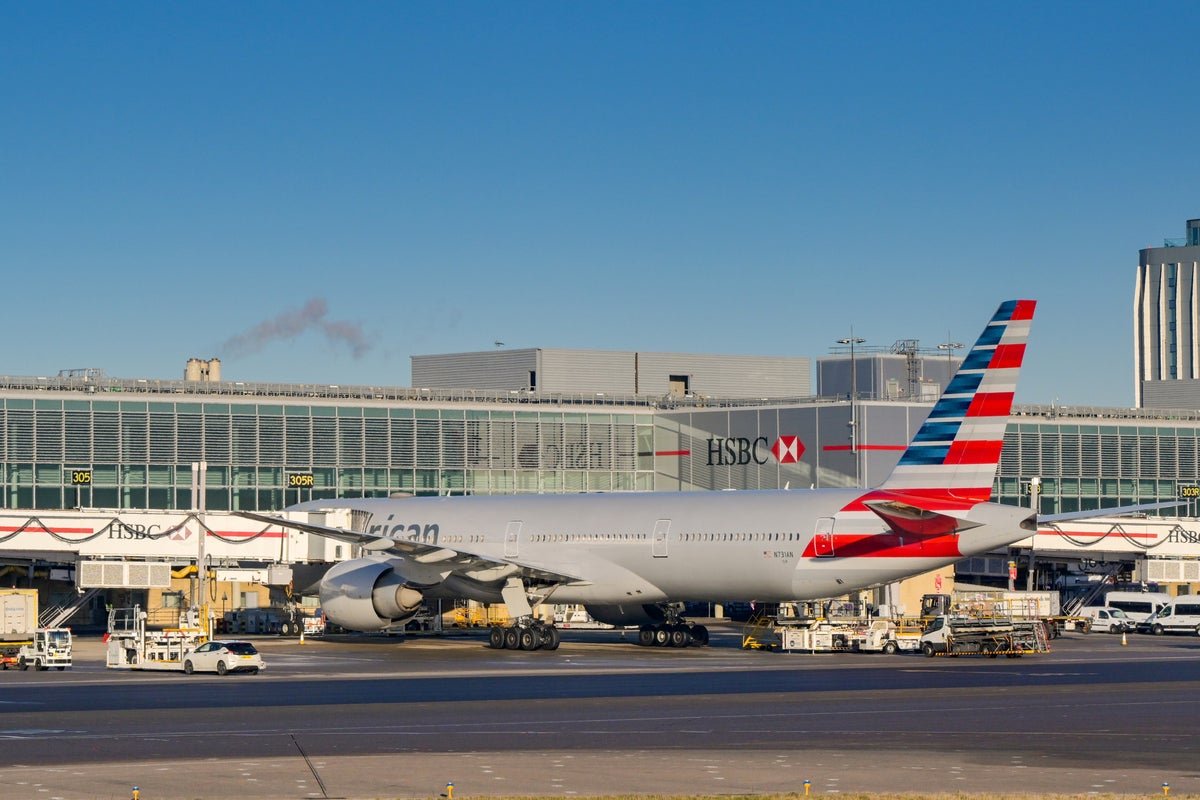
Travellers on connecting flights from London to the US will soon be able to avoid rechecking hold luggage and skip standard airport customs.
Starting this month, US Transportation Security Administration (TSA) pilot programme One Stop Security (OSS) plans to streamline terminal security steps to speed up connections for air passengers.
Some American Airlines passengers flying from London Heathrow airport with connecting journeys through Dallas Fort Worth International (DFW) will now be able to clear US Customs at the arrival gate.
From here, customers can directly board their connecting flight without reclaiming and rechecking hold luggage or clearing TSA security.
Typically, travellers must clear customs, claim checked bags, recheck bags and then again go through security.
With OSS, checked bags are automatically transferred to the connecting flight.
The pilot system is a partnership of the TSA, US Customs and Border Protection (CBP) and the UK Department for Transport (DfT).
According to American Airlines, the new process is expected to cut airport connection times by “more than half”.
American is the first US airline to pilot the scheme on select routes at DFW.
Some Delta passengers are also trialling OSS on routes from Heathrow to Hartsfield-Jackson Atlanta International Airport.
Travellers with Delta will be processed in a dedicated customs area and will not have to claim and recheck their bags. However, only those who are registered in Global Entry, a “trusted traveller programme”, or have the Mobile Passport Control app, will be able to bypass TSA screening, reported the NY Times.
To apply for Global Entry, British passengers are required to apply for a background check by the UK government (£42), then the US government (£90). Upon passing, passengers are subject to an in-person interview. Once completed, Global Entry is valid for five years.
The introduction of the security system in the US follows a successful pilot in February for travellers connecting to international destinations from London Heathrow.
David Seymour, COO at American Airlines, said: “One Stop Security is one of the most forward-thinking enhancements we can bring to international travel — and importantly, to our customers — as it delivers a level of convenience and time-savings that’s never been available before to customers connecting from international flights.
“Customers will spend significantly less time worrying about an onerous connection process and more time enjoying their travel journey.”
TSA deputy administrator Adam Stahl told Fox News Digital that OSS could be expanded to other airports in the next month.
He said: “It really is a common sense security approach for us to streamline security from abroad to the United States.”
The Independent has contacted TSA and Delta Air Lines for comment.
For more travel news and advice, listen to Simon Calder’s podcast
Flight Buzz
Russia launches first commercial passenger flights to North Korea in decades
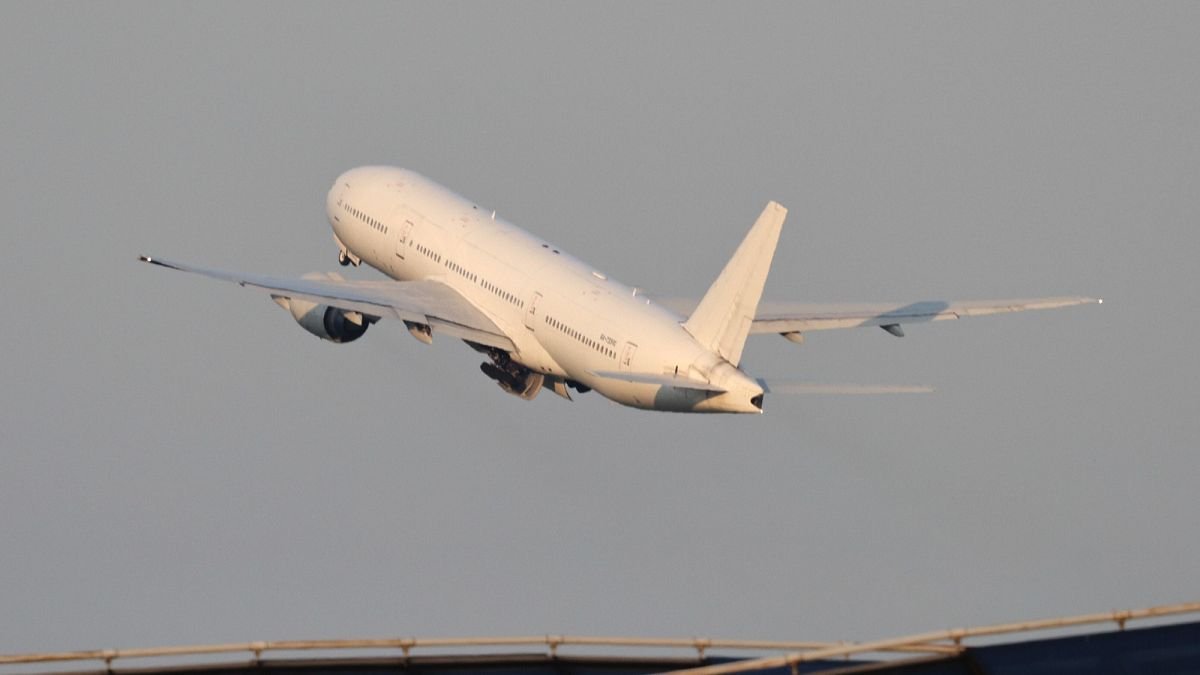
By Euronews Travel with AP
Published on
ADVERTISEMENT
Russia on Sunday opened a regular air link between Moscow and Pyongyang, a move reflecting increasingly close ties between the two countries.
The first flight operated by Russian carrier Nordwind took off from Moscow’s Sheremetyevo airport on Sunday, carrying over 400 passengers, and landed in North Korea’s capital around eight hours later.
Tickets for the flight were priced at 45,000 rubles ( around €480), according to Russian state media outlet TASS. It reported that authorities gave Norwind permission to fly to North Korea in July.
The airline used to carry Russians to holiday destinations across Europe, including Spain and Germany, until the EU banned Russian carriers from operating in its airspace in 2022.
Russia’s Transport Ministry said there will be one flight a month to meet demand. It may be the first regular flight between the two capital cities since the mid-1990s, according to Russian aviation blogs and follows the resumption of the 10-day Moscow to Pyongyang rail service in June.
Previously, the only direct flight between Russia and North Korea was the service from Vladivostok in Russia’s Far East, which operates three times a week.
North Korea’s tourism push
Russian Foreign Minister Sergey Lavrov, who visited North Korea’s new Wonsan-Kalma beach resort earlier this month to meet with North Korean leader Kim Jong Un, promised to encourage Russian tourists to visit the complex.
The resort, which can accommodate nearly 20,000 people, is at the centre of Kim’s push to boost tourism to improve his country’s troubled economy.
North Korea has been slowly easing the curbs imposed during the pandemic and reopening its borders in phases. But the country hasn’t said if it will fully resume international tourism. Restrictions still largely ban foreign tourists from entering the country.
Regular flights between Russia’s eastern port city of Vladivostok and Pyongyang reopened in 2023 following a break caused by the coronavirus pandemic.
Russia and North Korea have sharply expanded military and other ties in recent years, with Pyongyang supplying weapons and troops to back Russia’s military action in Ukraine.
Flight Buzz
Wizz Air Achieves Record of Thousand Daily Flights And Expands Horizons in Europe
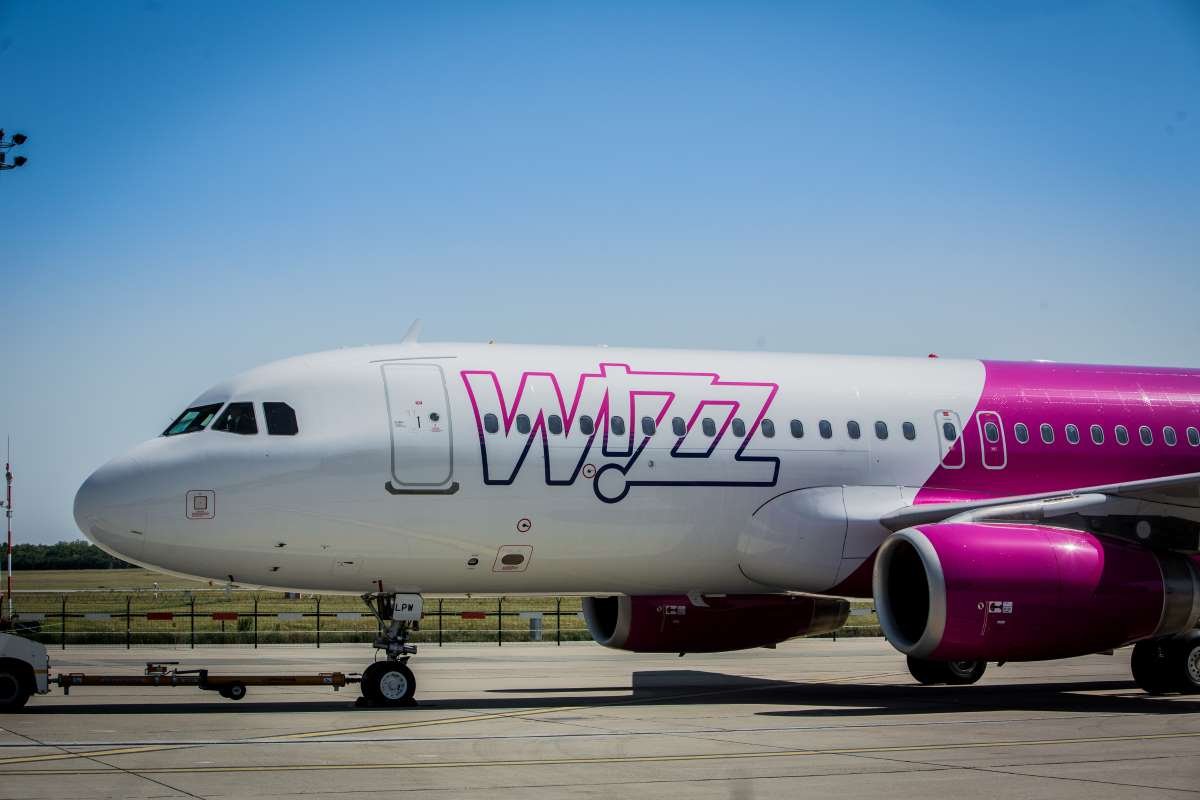
Monday, July 28, 2025
Wizz Air, the leading Hungarian low-cost airline, has achieved a remarkable milestone by reaching 1,000 daily flights across Europe. This achievement highlights Wizz Air’s commitment to offering affordable and accessible travel options for millions of passengers every day. As one of the fastest-growing airlines in Europe, Wizz Air has expanded its reach significantly, connecting more cities and regions through its extensive network.
This major accomplishment is not just a milestone for the airline itself, but also for the broader European aviation industry. With its fleet of modern aircraft, innovative services and extensive route network, Wizz Air has cemented itself as a key player in European air travel.
Expansion of Routes and Increased Frequencies
The achievement of 1,000 daily flights reflects Wizz Air’s ongoing efforts to expand its routes and increase the frequency of its most popular services. Wizz Air has made it a priority to grow its network, especially by opening new routes that connect major European cities, regional hubs and underserved markets. For instance, the airline recently launched daily flights between Chisinau, Moldova and Bucharest, Romania, providing faster and more convenient travel options for passengers.
Such strategic route expansions help meet the demand for both business and leisure travel. By providing more flight options, Wizz Air enables passengers to travel at times that are most convenient for them, while also fostering economic growth in the regions it serves. Additionally, the airline’s commitment to increasing flight frequencies on high-demand routes ensures that travelers have greater flexibility and more choices when planning their journeys.
Beyond its existing routes, Wizz Air has also shown a keen interest in expanding into new markets, particularly in Eastern and Central Europe. With Europe’s demand for travel continuing to grow, Wizz Air’s decision to bolster its presence in these regions provides a much-needed boost for both local economies and the airline’s expanding customer base.
Fleet Modernization and Operational Efficiency
A significant contributor to Wizz Air’s ability to achieve such an extensive operational reach is its fleet modernization strategy. The airline operates one of the youngest fleets in the world, with the majority of its aircraft being Airbus A320 and A321 models.
The fuel-efficient nature of these aircraft plays a crucial role in helping the airline offer competitive ticket prices without compromising on service quality. This focus on maintaining a younger fleet also ensures that Wizz Air can better manage its environmental footprint, aligning with broader industry trends toward more sustainable aviation practices. The new, fuel-efficient aircraft not only help reduce operational costs but also significantly cut down on carbon emissions, contributing to the airline’s sustainability goals.
Moreover, the efficiency of the fleet ensures that Wizz Air can maintain high levels of punctuality and reliability, which are essential factors in the airline’s ability to handle 1,000 flights per day. With advanced technology and consistent performance, the airline is well-positioned to meet the growing demand for air travel while ensuring a smooth and efficient operation.
Wizz Air’s Commitment to Sustainability
As Wizz Air celebrates the 1,000 daily flight milestone, it is also placing a strong emphasis on sustainability. In a world where environmental concerns are becoming increasingly important, Wizz Air has taken several steps to ensure its operations are as sustainable as possible.
The airline has invested heavily in its fleet, opting for aircraft that are not only more fuel-efficient but also produce fewer carbon emissions per passenger. Wizz Air’s commitment to reducing its environmental impact goes beyond just fleet efficiency. The airline has introduced various initiatives to reduce waste and conserve resources, and it is actively exploring innovative solutions to further reduce its carbon footprint. These efforts align with broader industry movements towards sustainability, and Wizz Air is positioning itself as a leader in the green aviation space.
Enhanced Passenger Experience and Customer Service
Alongside its fleet modernization and sustainability efforts, Wizz Air continues to enhance its customer service offerings. The airline understands the importance of delivering a seamless travel experience, particularly as the demand for air travel grows. In response to this, Wizz Air has improved its onboard services, offering a more comfortable and enjoyable flying experience.
Wizz Air’s fleet features modern interiors, including improved seating, better cabin lighting, and additional onboard services designed to make travel more convenient and pleasant for passengers. In addition to improving the in-flight experience, the airline has also invested in its customer service operations, including online booking systems, mobile app functionality, and check-in processes.
By continually refining its services and passenger touchpoints, Wizz Air ensures that it remains competitive in an increasingly crowded market. As part of its ongoing commitment to its customers, the airline is focused on providing a high-quality experience at an affordable price, helping to build brand loyalty among travelers.
Looking Ahead: The Future of Wizz Air
As Wizz Air celebrates the achievement of operating 1,000 daily flights, the future looks bright for this rapidly growing airline. With continued fleet growth, increased route frequencies, and expanded sustainability initiatives, Wizz Air is well-positioned to maintain its momentum in the years to come.
The airline has ambitious plans for further expansion, particularly into new European markets and beyond. As travel demand rebounds across the globe, Wizz Air is poised to meet this demand with a robust network and efficient operations. The airline’s ongoing commitment to low-cost travel, combined with its focus on sustainability and customer service, will ensure that it remains a dominant player in Europe’s competitive airline industry.
Conclusion
Wizz Air’s achievement of 1,000 daily flights is not just a testament to the airline’s rapid growth and operational efficiency but also a reflection of the increasing demand for low-cost air travel in Europe. By continuously expanding its fleet, increasing frequencies, and focusing on sustainability, Wizz Air is helping to shape the future of air travel.
The milestone marks a significant step in the airline’s journey and highlights its ability to adapt to the changing dynamics of the aviation industry. As Wizz Air continues to grow and evolve, passengers can look forward to even more travel options, enhanced services, and a more sustainable future of air travel. Wizz Air’s success at reaching 1,000 daily flights shows that the airline is not only meeting the needs of today’s travelers but also positioning itself for success in the years ahead.
Image Credit:- Wizz Air
-

 Brand Stories1 week ago
Brand Stories1 week agoBloom Hotels: A Modern Vision of Hospitality Redefining Travel
-

 Brand Stories2 days ago
Brand Stories2 days agoCheQin.ai sets a new standard for hotel booking with its AI capabilities: empowering travellers to bargain, choose the best, and book with clarity.
-

 Destinations & Things To Do1 week ago
Destinations & Things To Do1 week agoUntouched Destinations: Stunning Hidden Gems You Must Visit
-

 AI in Travel1 week ago
AI in Travel1 week agoAI Travel Revolution: Must-Have Guide to the Best Experience
-

 Brand Stories3 weeks ago
Brand Stories3 weeks agoVoice AI Startup ElevenLabs Plans to Add Hubs Around the World
-

 Brand Stories2 weeks ago
Brand Stories2 weeks agoHow Elon Musk’s rogue Grok chatbot became a cautionary AI tale
-

 Destinations & Things To Do2 days ago
Destinations & Things To Do2 days agoThis Hidden Beach in India Glows at Night-But Only in One Secret Season
-

 Asia Travel Pulse3 weeks ago
Asia Travel Pulse3 weeks agoLooking For Adventure In Asia? Here Are 7 Epic Destinations You Need To Experience At Least Once – Zee News
-

 AI in Travel3 weeks ago
AI in Travel3 weeks ago‘Will AI take my job?’ A trip to a Beijing fortune-telling bar to see what lies ahead | China
-

 Brand Stories3 weeks ago
Brand Stories3 weeks agoChatGPT — the last of the great romantics

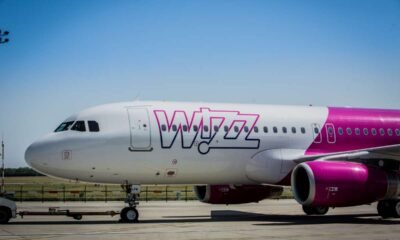

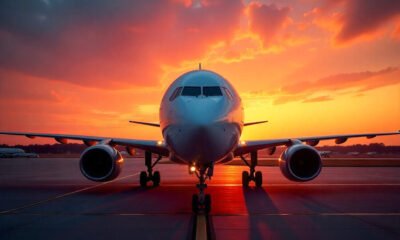









You must be logged in to post a comment Login